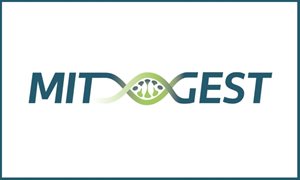 My name is Elianne Bulthuis, I am Dutch, PhD candidate at the Department of Biochemistry, theme Mitochondrial diseases
My name is Elianne Bulthuis, I am Dutch, PhD candidate at the Department of Biochemistry, theme Mitochondrial diseases
When you were a kid what did you want to be when you grew up? Can you tell us something about your child years.
As a kid, I really wanted to become a physician, either a surgeon or gyneacologist. My favorite game was to “play doctor”’, my grandpa being my favorite patient.
What was your previous academic training, where did you study and why that study?
At some point, that idea of becoming a physician started to scare me a little bit. I was still highly interested in medical subjects, but the biology curriculum appealed more to me than biomedical sciences did. That’s why I decided to study Biology and specialize in Biomolecular sciences, both at the Vrije Universiteit in Amsterdam.
The RIMLS motto is: ‘Today’s molecules for tomorrow’s medicine’. What does this mean for you?
My project is quite fundamental, so the motto does not directly apply to my research. However, understanding the bidirectional links between mitochondrial structure and function is essential in the search for a cure to mitochondrial diseases. So hopefully, my work can contribute to “tomorrow’s medicine”!
Who is your great example as scientists? And please give a motivation why.
I don’t really have a specific example. So many people did amazing work in the past, providing a strong base for research nowadays.
Which research discovery that you have made has made you most proud?
I guess such a discovery is yet to come!
Given unlimited finance what experiment would you perform?
I would apply lots of microscopic techniques to many (mitochondrial patient) cell lines treated with many compounds to see which can restore mitochondrial structure and function.
What does your working area (desk, office) look like and what does it say about you (or your research)?
It is kind of an organized chaos, not too tidy but I always know where to find things. I am not sure what this says about me, since I can be a bit chaotic (or probably simply too busy), but I am usually quite organized when I do experiments.
Nominate a colleague to be in the spotlight and what would you like to ask him or her?
I would like to nominate Bodine Bezemer. We did our master’s together in Amsterdam, and I think it is really nice that our paths cross again here in Nijmegen!
What type of person are you, quick insights:
a) Mac or PC? : PCb) Theater or cinema? : Theater
c) Dine out or dine in? : Dine out
d) Ferrari or Fiat? : Fiat
e) Shopaholic or chocoholic? : Difficult to choose, probably chocoholic?
f) Culture or Nature : Impossible to make a choice!
Related news items

Hans Spelbrink is beneficiary of the MITGEST Doctoral Network which receives 2.6 million euros funding (PhD positions available)
27 September 2022EU has granted the new Doctoral Network “MITGEST” (Quality Control of the Mitochondrial Gene Expression System in Health and Disease), of which Radboudumc is one of the partners, with 2.6 million euros of funding under the Marie Sklodowska-Curie Actions.
go to page
Sonlicromanol seems promising for certain cancers Khondrion announces publication in PLOS ONE of new research
13 July 2021 Khondrion announces publication in PLOS ONE of new research showing normalisation of prostate cancer stem cell mPGES-1 overexpression and inhibition of cancer spheroid growth by sonlicromanol’s active metabolite. go to page
Werner Koopman 25 years at Radboudumc celebrating online
8 July 2020Werner Koopman completed his 25 years at Radboudumc. Biochemistry sent him a cake at home and celebrated this special moment during COVID-19 in a unique way.
go to page
Grant to study mitochondrial morphofunction in Parkinson’s disease
14 March 2019 Werner Koopman, theme Mitochondrial diseases, received 400,000 euro as a member of the PD-MitoQUANT consortium. The latter is an EU-funded Innovative Medicines Initiative research project that will improve our understanding of Parkinson’s so that better treatments can be developed in the future. go to page
Biodegradable nanoreactors demonstrate ROS shielding in human-complex-I-deficient fibroblasts
9 July 2018 Researchers of the Radboudumc and colleagues have successfully developed enzyme-loaded polymersomal nanoreactors capable of undergoing cellular integration in a controlled fashion and, subsequently, function as synthetic organelles. go to page
